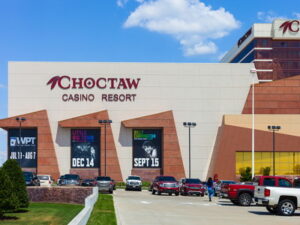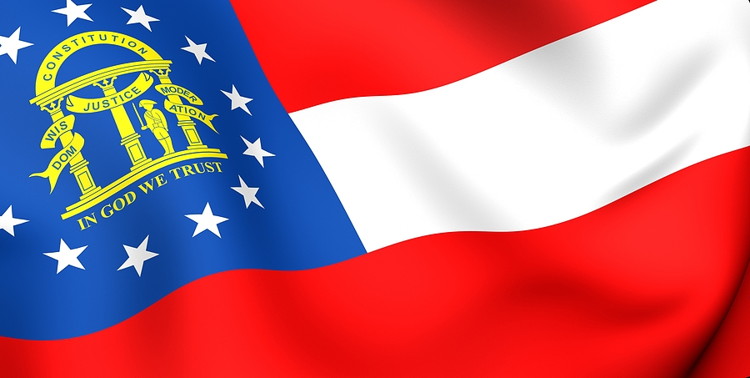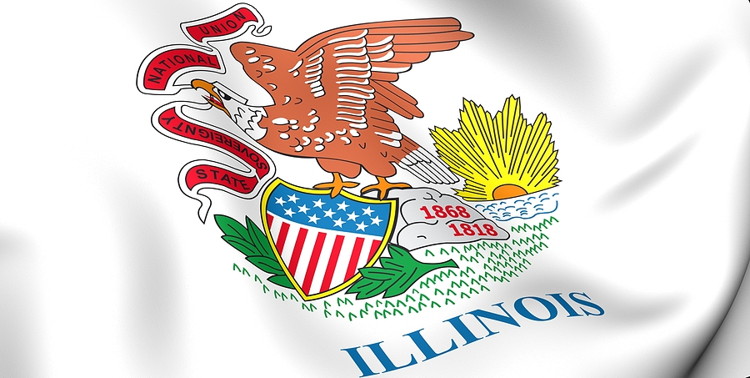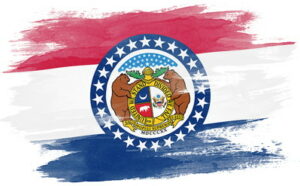Crazy Methods Used To Get Around Gambling Laws
 Many countries around the world have set up their own gambling laws. These are in place so that the sector can operate under regulations. In theory, it stops illegal gambling activity from taking place and at the same time, it means that all necessary tax from gambling goes to the Treasury.
Many countries around the world have set up their own gambling laws. These are in place so that the sector can operate under regulations. In theory, it stops illegal gambling activity from taking place and at the same time, it means that all necessary tax from gambling goes to the Treasury.
It’s true to say that this works for many countries, including the United Kingdom. Operators in the UK pay tax on their revenue, which adds to the government pot. At the same time by issuing licenses to operate under an independent regulator means sites must adhere to safe and responsible gambling laws.
Different laws around the world, however, mean that certain forms of gambling are unavailable in some places. Legislation may cater for legal sports betting but not casino gaming, for example. This means that casinos in such a location should not exist.
It also means that people are missing out on opportunities, too. Because of this, various ways have come to light for them to circumvent gambling laws. In doing so, they get to experience gambling options that are otherwise restricted. With that being the case, we thought we would look at some of the ways people have done so. What action has been undertaken to get around gambling laws in the world?
Riverboats in the United States of America
 In several locations across the USA, there is a chance to embark on a riverboat. The utilisation of these for casino gaming came about due to the U.S. legislation on gambling. This is something that has quite the complicated history in the country.
In several locations across the USA, there is a chance to embark on a riverboat. The utilisation of these for casino gaming came about due to the U.S. legislation on gambling. This is something that has quite the complicated history in the country.
The laws of the land have dictated that land-based casino gambling has been illegal in many states. Because of this, avid gamers were not able to enjoy their favourite casino games. The demand for such remained high throughout the country and as a way of navigating around the laws, riverboat casinos began popping up.
These riverboats are often found on the Mississippi River and many of its tributaries. They also appear along the Gulf Coast as well. Some states have since authorised this type of casino as a way of enabling gambling but limiting it. Because it takes place within a confined area, the belief is that there is less chance for it to become a problem. Riverboats were hardly ever taken away from the dock, though, so, it kind of served as a legal fiction of sorts.
The original paddlewheel riverboats transported freight and passengers along the river. Once railways overtook them, they became useful for entertainment excursions. The riverboats would provide ideal ways for people to escape the heat of town. Live music and dancing would often take place aboard them, too. It was from this that gambling soon became a common activity onboard. Slot machines and card games often graced the boat floors for people to enjoy.
First approved in the late 20th century, the states prohibited gambling on land. Thus, riverboats with casinos had to sail away from the dock. Gambling would only take place once the boat was away from the dock in some areas. This became an approved activity in states with frontage along the Mississippi. They included Illinois, Indiana, Louisiana, Mississippi and Missouri.
A strange situation occurred in the mid-20th century. A quirk in the state border between Maryland and Virginia arose. The border between the two is not in the middle of the river. Instead, it sits at the low water mark on the Virginia side. The entire river is thus in Maryland. Several riverboat casinos stood docked off the Virginia shoreline in the 1950s. Gambling was legal in parts of Maryland at the time, but not in Virginia. Yet people could park in Virginia, walk across a pier and cross state lines at the same time. Residents of Virginia could access gambling this way via a simple walk into Maryland.
To put it in a simple format though, riverboats worked as a clever gambling loophole. They operated on water, rather than on land. This meant that they weren’t restricted by the land-based gambling laws. The waters on the Mississippi River and elsewhere were not regulated, so, many casinos moved their operations into riverboats to avoid law enforcement.
Native American Indian Gambling Resorts
 Before the modern-day America, the lands of the USA had a different people living there. Native Americans spread across a large area of the country, dwelling in tribes. Of course, the arrival of European explorers meant that many of these people died. Not only were they killed in by the new migrants, but disease was also spread to them. Around 55 million people died this way (about 90% of the indigenous population). It wasn’t until several centuries later that tribal sovereignty in the USA came about.
Before the modern-day America, the lands of the USA had a different people living there. Native Americans spread across a large area of the country, dwelling in tribes. Of course, the arrival of European explorers meant that many of these people died. Not only were they killed in by the new migrants, but disease was also spread to them. Around 55 million people died this way (about 90% of the indigenous population). It wasn’t until several centuries later that tribal sovereignty in the USA came about.
In the early 1970s, married Chippewa couple Russel and Helen Bryan received a property tax bill. They lived in a mobile home on Indian lands in Minnesota. Having never had such a bill before, they took the tax to local attorneys. They brought about a suit to challenge it in state courts. The Bryans lost that case and then lost an appeal, so, they took it to the Supreme Court.
A review took place which found in the favour of the Bryans. It said that states do not have the authority to tax Native Americans on their reservations. Furthermore, they cannot regulate Native activities on their reservations, either. It was this that led to the formation of Native bingo operations in various locations.
The Seminole Tribe of Florida built a high-stakes bingo building in Fort Lauderdale. They opted for it to be open on a six-days-a-week basis. That went against Florida state law, which only allowed bingo halls to be open for two days per week. The Seminole establishment also went above the $100 jackpot peak allowed. Arrests were made within minutes of the bingo hall opening, but the tribe sued Broward County. The District Court ruled in the Native Americans’ favour.
Controversy also arose when the Natives began building more gambling establishments. These remained on their reservations but had prize limits above the legal limit of the state. Natives argued for sovereignty over their reservations, making them immune from state laws. This led to much debate over the legality of tribal gaming and the establishments. Those arguments over such have continued on into today. But these casinos, bingo rooms, lotteries and so on are still in operation. They serve as a way for people to get around stringent state gambling laws.
The Modern Virtual Private Network
 Gambling laws can be stringent around the world in many countries. You only need to look at places like the Middle East, Cambodia, Singapore and other countries for this. Some of this will be due to religion, such as in Islamic countries. At other times, it will be due to general fears of gambling addiction getting out of hand. Nonetheless, these laws exist and have the aim of restricting residents from gambling. It is also a lot more common for countries to restrict online gambling, as opposed to land-based.
Gambling laws can be stringent around the world in many countries. You only need to look at places like the Middle East, Cambodia, Singapore and other countries for this. Some of this will be due to religion, such as in Islamic countries. At other times, it will be due to general fears of gambling addiction getting out of hand. Nonetheless, these laws exist and have the aim of restricting residents from gambling. It is also a lot more common for countries to restrict online gambling, as opposed to land-based.
The online world can be very resourceful, though. People have come up with various means and ways of accessing restricted content. Gambling is one such activity that is accessible from countries where bans are in place. A lot of the time, this is able to happen thanks to the use of a Virtual Private Network (VPN).
A strong selection of these exist today for people to download and use. Through doing so, a piece of software ends up installed on your computer or mobile device. A user can then connect to a network based in another country. This hides the local network they are using, making it look like their device is elsewhere. If you’re in Singapore and want to gamble, you may end up using a VPN to connect to Spain, for example. This way, you would be able to access various online gambling sites that are illegal in Singapore.
It is difficult for governments to control websites of this nature outside of their own borders. This is why many people have turned to offshore gambling sites. Because they fall out of the legislative reach of the country they live in. Most VPNs can link up to a large number of countries around the globe. Due to this, some countries have chosen to ban VPNs, as they realise what some people use them for.
It is worth stating here that while using a VPN may be possible it will go against the terms and conditions of your account with a licensed betting site. If you are found using a VPN you may forfeit any bets and have an account suspended or closed.
Slot Machines in Georgia

The state of Georgia actually has some of the strictest gambling restrictions. It does not allow commercial casinos or sports betting to take place within. In fact, only lottery tickets and charitable gaming are available. Yet one type of casino game has managed to work its way in.
It was in 2013 that Georgia legalised coin-operated amusement machines (COAMs). Known as bill HB 487, a certain type of public slot game became available through this. The difference with these is that they cannot pay cash to anyone who is successful when playing. Instead, they receive credits, which they can use to buy one of the following:
- Fuel
- Lottery Tickets
- In-Store Merchandise
At the time, this seemed to be pleasing for those with an anti-gambling stance. Some business owners had little interest in pleasing them, though. They know that more players will play the slots if they stand the chance of receiving cash payouts. Therefore, they took it upon themselves to remove the credits and provide cash instead.
This has led to several operations taking place by the Georgia Bureau of Investigation. One of them found five businesses providing cash payouts on their COAMs. The GBI arrested two people for it. Yet, the belief is that this activity is much more widespread across Georgia.
That’s not people exploiting a loophole so much as it is them ignoring the laws. Of course, the business owners wanted a cut of the profits from cash gambling. This is the reason that they replaced the credits with cash in the first place.
Gambling in Illinois & Chicago

Illinois has a unique set of laws on gambling. Video Gaming Terminals (VGTs) are available. Yet local municipalities also have the power to disallow them in their areas. VGTs are thus legal in Illinois, but illegal in the city of Chicago. Instead, it incorporates sweepstakes machines. They operate like VGTs, but they have specific differences. This is what allows them to circumvent Chicago’s laws against VGTs. Those differences with the machine are:
- Players do not pay for their first set of free credits
- Machines pay out coupons instead of cash
Those people in support of sweepstakes machines lean on these differences. It is this mindset that they believe makes them legal machines. But certain obscurities exist with this, too. Machines do allow players to buy more credits once the first free round is over with. They can also redeem the coupons for cash. That does seem to make them VGTs, rather than being exceptions to the ban in Chicago.
Lawmakers have had several goes at banning sweepstakes machines within the city. The attempts have been failures, though. The machines remain in operation within, even though some lawmakers are against them.
One Final Point – Missouri
 The state of Missouri is a final location to touch on within the USA. There, you will be able to access no-chance slot machine games. Found in convenience stores, rules on how they operate are stuck to the machines. Players can see their chances of winning a round before taking the next turn. There is no opportunity to skip that turn, though. It must play out, so, players using these machines could be betting on spins coming after the current one.
The state of Missouri is a final location to touch on within the USA. There, you will be able to access no-chance slot machine games. Found in convenience stores, rules on how they operate are stuck to the machines. Players can see their chances of winning a round before taking the next turn. There is no opportunity to skip that turn, though. It must play out, so, players using these machines could be betting on spins coming after the current one.
The stickers on these machines do claim that they are not illegal. This, they say, is because they display a player’s chances of winning beforehand. Missouri’s gambling law is also quoted on those stickers, with the loophole also pointed out. This is one instance where the loophole exploitation wasn’t taken lightly, though. Integrity Vending LLC – the company behind the no-chance slots – lost a case in court. Thus, the machines could end up disappearing from Missouri in due course.
Was it a good idea for the machines to advertise the loophole on their stickers? Most likely not. Some states in America can also crack the legal whip quite hard on companies operating in such a way, too. It only took one Missouri county to disapprove of the no-chance slots before the court case. Thus, such loopholes are a crazy route to take.



